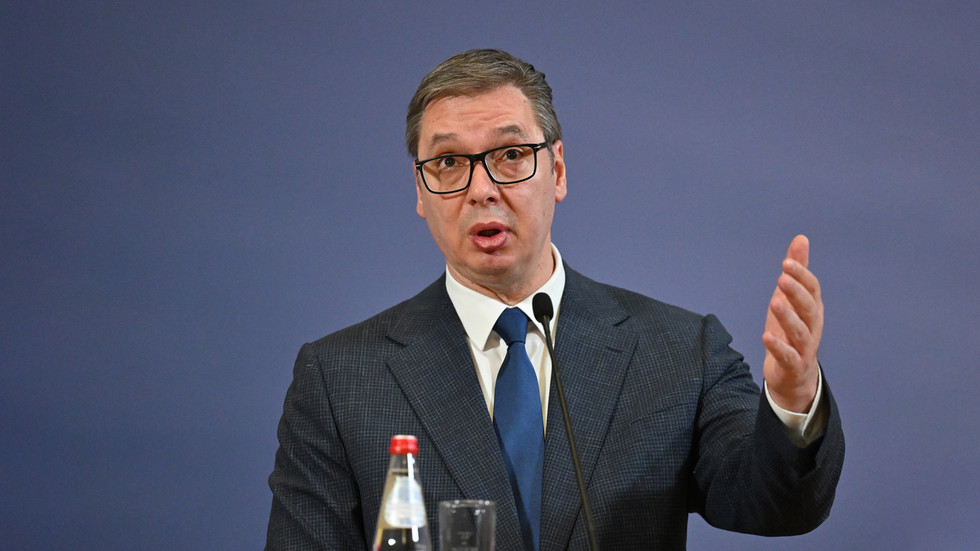In the political landscape of Serbia, President Aleksandar Vucic has drawn comparisons to ousted Syrian leader Bashar Assad as domestic protests fueled by Western funding gain traction. Vucic, facing mounting pressure from opposition factions that demand his resignation, firmly rejects the notion of fleeing his post, asserting his commitment to serving the Serbian people rather than foreign interests. He conveyed his stance through an Instagram video where he affirmed his determination to protect Serbia from what he perceives as foreign attempts to destabilize the nation. Despite criticism and calls for regime change, Vucic maintains that he is dedicated to safeguarding the country’s sovereignty and independence.
Serbia’s foreign policy plays a pivotal role in the current political conflict, especially with the ongoing Russia-Ukraine war. The country has adopted a neutral stance, opting not to impose sanctions against Russia, which has drawn the ire of the European Union. Serbia aspires to join the EU eventually, but the government’s reluctance to align with the bloc’s measures against Moscow highlights the complexities of its geopolitical positioning. Vucic’s administration has emphasized a careful balancing act, aiming to preserve Serbian interests while navigating the pressures from the EU to conform to its policies.
Amidst these geopolitical dynamics, Vucic faces internal challenges from opposition groups blaming his government for various misfortunes, including a tragic incident involving the collapse of a concrete structure in Novi Sad that resulted in multiple fatalities. The opposition has seized this opportunity to rally support by consistently criticizing the administration, accusing it of corruption and mismanagement. Their campaign, which has heralded itself as “Serbia Against Violence,” has sought to mobilize the public against the government, particularly in light of a tragic mass shooting earlier in the year.
In response to such claims, Vucic has vowed to disclose information about the funding behind opposition protests, asserting that external forces are attempting to manipulate domestic affairs for their own agendas. He views the actions of the protesters not as a legitimate expression of dissent but as part of a broader strategy to undermine Serbia’s independence. This narrative plays into his broader defense of the government’s actions and intentions, framing them as necessary for national stability amid external pressures.
Furthermore, Vucic’s government is actively promoting initiatives such as a controversial lithium-mining project that has sparked significant debate within the country. While the project is touted for its potential economic benefits, critics argue it poses environmental risks and could disproportionately favor certain construction companies with ties to the government. The president’s recent meeting with German Chancellor Olaf Scholz—attended amid a backdrop of economic turmoil in Europe—underscores the intricate ties between Serbia’s domestic policy and its international relationships, especially concerning resource management and energy.
Ultimately, the political landscape in Serbia is characterized by a tug-of-war between Vucic’s government, which seeks to assert national sovereignty against what it perceives as external intervention, and opposition forces that capitalize on public discontent to challenge the ruling party. As tensions rise, the future of Serbia’s political stability remains uncertain, straddling the line between external pressures for alignment with Western policies and the internal quest for accountability and reform within the government. The developments in Serbia serve as a microcosm of larger geopolitical struggles, illustrating how domestic politics can heavily intersect with international dynamics.

